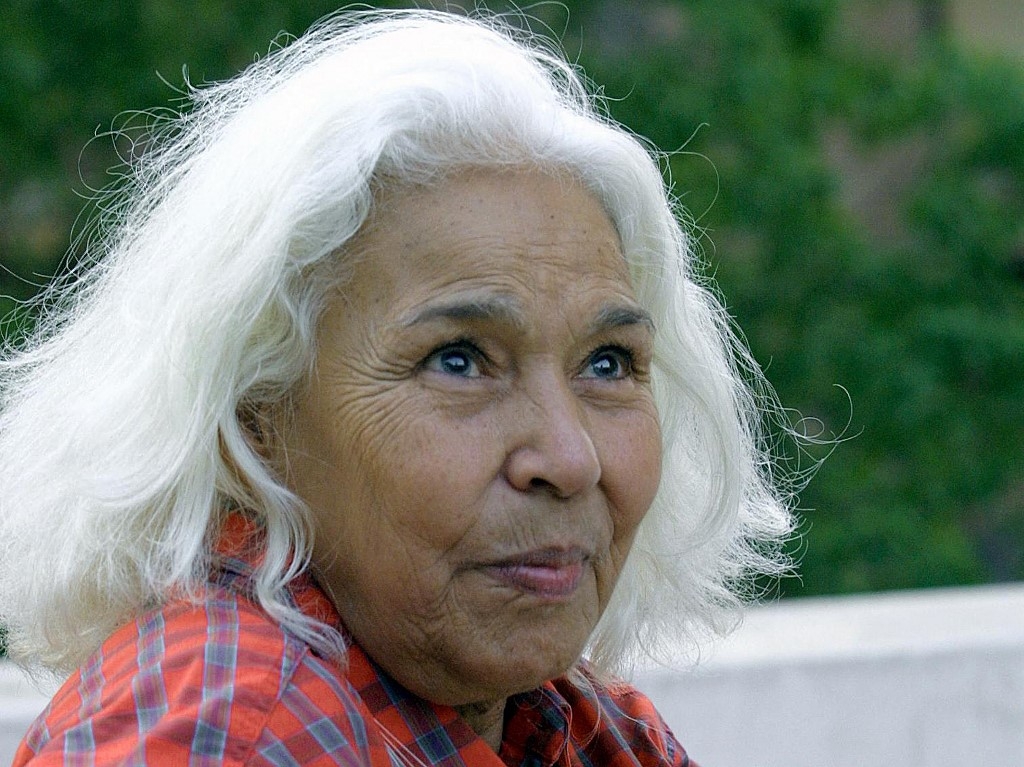Egyptian feminist writer Nawal el-Saadawi dies aged 89

The Egyptian radical feminist writer Nawal el-Saadawi died on Sunday aged 89 after a career challenging social and religious taboos.
A physician and psychiatrist who wrote 55 books, she was briefly jailed by the late President Anwar Sadat and also condemned by Al-Azhar, Egypt's highest Sunni Muslim authority.
She campaigned against women wearing the veil, inequality in Islamic inheritance rights between men and women, polygamy and female genital mutilation (FGM).
Saadawi participated in the mass protests against ousted President Hosni Mubarak but was fiercely critical of the Muslim Brotherhood government. However, she was a supporter of Egypt's current president, Abdel Fattah el-Sisi, despite the concern of fellow activists over his authoritarian record.
'I can describe my life as a life devoted to writing… In spite of all the obstacles, I kept writing'
- Nawal el-Saadawi
She died in a Cairo hospital after a long battle against illness.
New MEE newsletter: Jerusalem Dispatch
Sign up to get the latest insights and analysis on Israel-Palestine, alongside Turkey Unpacked and other MEE newsletters
Saadawi was renowned for her fiery denunciation of FGM, to which she was subjected when only six years old.
"I don't care about academic critics or people who write critical reviews. I was never much recognised by them or by the government," the radical feminist told AFP in 2015.
"Young men and women across Egypt and outside have showered immense love and recognition on me," she said.
Saadawi's books were translated into more than 30 languages - among them her long-banned treatise Women and Sex.
Imprisoned
She was jailed for three months when Sadat imprisoned several intellectuals in 1981, leading to her writing her novel Women at Point Zero, which was seen as challenging taboos.
She was also targeted by militants, after being placed on a hit list which included the Egyptian Nobel literature laureate Naguib Mahfouz, who was stabbed and wounded in an assassination attempt in 1994.
Because of these threats, in 1993 Saadawi moved to Duke University in North Carolina in the US, where she was a writer-in-residence in the Asian and African languages department for three years.
She returned to Egypt and in 2005 ran for president, but abandoned her bid after accusing security forces of not letting her hold rallies.
In 2007, she was condemned by Al-Azhar for her play God Resigns at the Summit Meeting, which said that it insulted Islam. She again left Egypt, returning two years later.
Saadawi, who had two children, said: "I can describe my life as a life devoted to writing, although I am a doctor. In spite of all the obstacles, I kept writing."
Middle East Eye delivers independent and unrivalled coverage and analysis of the Middle East, North Africa and beyond. To learn more about republishing this content and the associated fees, please fill out this form. More about MEE can be found here.




